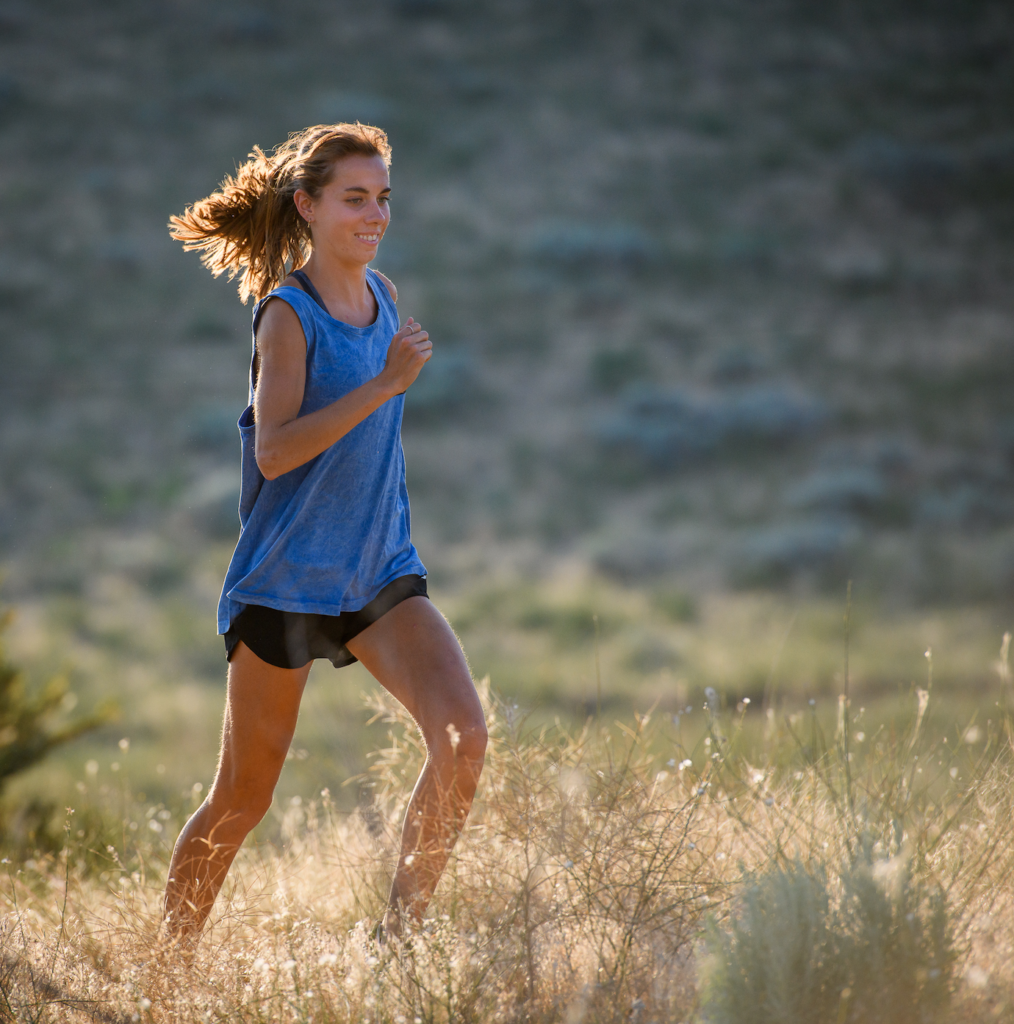Image: Pro Image Photography, Idaho
Coffee For Runners: The Benefits of Caffeine for Athletes
If you participate in sports competitions regularly, it’s likely you would’ve heard athletes discuss the use of caffeine for performance-enhancing benefits. Just walk down a busy street with coffee shops near popular running or biking trails on a weekend morning, and you’ll often find cycling or run groups having a brew. Coming from Australia, coffee is a big deal. In Melbourne and Sydney in particular, Coffee is an art. You could spend a whole day exploring different coffee roasters and the varied eclectic atmosphere they create for you to sit and enjoy your brew. I’ve enjoyed exploring coffee shops in my new city, Boise.
Caffeine For Runners: Is Caffeine good for runners?
Caffeine is often recommended for runners as it can have a slight performance-enhancing effect if the individual times their ingestion correctly to their race/event start time and correctly for the duration or distance of the race. The AIS (Australian Institute of Sport..hello home country!) released the AIS Sports Supplement Framework (Click here to read), grouping supplements into ABCD based on the capacity they are allowed in during and out-of-competition usage, which can be nothing at all. Caffeine is in Group A under performance supplements, please refer to the source below, attained from the AIS website:

Caffeine intake will stimulate an increase in HR/heart-rate (it itself is a stimulant), to put it simply. This is because adrenaline circulating in the body is elevated, which is the hormone associated with fight, flight, or fright response and a factor stimulating the sympathetic nervous system. This in turn will increase the athletes’ ability to perform demanding tasks, such as a hard race.
Caffeine can also cause an upset stomach, better known as G.I distress for runners if the athlete is not used to coffee when training. However, if the individual is able to take on board coffee, their awareness, alertness, the focus can increase and their perception of effort may be decreased. What’s not to love about that? I’m personally a big fan of coffee before racing.
Here’s an even niftier trick you can consider which I came up with whilst out on a long run one Sunday morning. I practice this regularly to get the optimum race-day advantage. As a regular coffee drinker, many would agree that we become slightly immune to the effects of coffee over time. Considering this, I only drink decaffeinated coffee and tea, or no coffee at all, up to 5 days before a race. Whether it is a placebo effect or not, I can’t be sure, but I know I definitely feel the effects of the caffeine when I drink coffee on race day after no coffee for a few days (a temporary coffee fast, you could call it). On the day of the race, if it is an early start time, I take on board 2 shots, and if it is in the evening, up to 3. I’m buzzing and ready to go!
The only drawbacks of using caffeine are the risk of GI distress, the need to urinate, and potential jitters. Getting the jitters isn’t such a big issue for distance runners, as our sport doesn’t require us to be still to execute a good performance (unlike an archer, or 100m sprinter on the start blocks, for instance). To avoid GI distress, we train the stomach in practice to be able to handle varying amounts of caffeine, well before race day.
Should I drink Coffee before a run? Is too much Caffeine bad before a run?
For many runners in particular, including myself, coffee is a big part of my morning routine before training or races. One study evidently highlighted that more than two-thirds of Olympians use caffeine as a pre-workout supplement. In the hotter months, particularly when temperatures can hit 45 degrees C or 100+ Fahrenheit here in Boise, I’ll reach for the cold brew pre-run. In winter when it is significantly cooler, it’s a double shot latte or Americano. Investing in a coffee machine is your best bet for convenience and finances, especially if you’re a student or student-athlete.
Image: Pro Image Photography, Idaho
I love how my morning cup of coffee increases my alertness and awareness. Most of the time I find myself running in the mornings within 30-1hr after hopping out of bed (especially in the summer). I’ll pair my coffee with a small snack to help with the digestion of the coffee and satiate my hunger during the training session. A pre-run snack that pairs well with coffee is normally a bowl of cereal with non-dairy milk or toast with jam/honey or nut butter.
Is too much caffeine bad before a run?
If you’re an individual who believes they can’t eat before or close to a run, I urge you to train yourself to be able to take on board something, including a coffee. Training is time to practice for race day – you can survive a few uncomfortable running sessions in the short term, to invest in optimal long-term nutrition.
Does Drinking Coffee make you run faster?
There’s evidence to support the benefits of caffeine in endurance-based sports. Most caffeine supplements are 2-3 shots dense (80-120 milligrams), as this is believed to be the best amount to consume to improve performance. Many online sources discuss using 5mg of caffeine per kilogram of body weight. With 1 cup of coffee containing around 95-120 mg of caffeine, you may have to have a double shot or two cups to get the full effects.
Coffee works to improve your performance in a few ways. Most notably, it can reduce your perceived levels of exertion during difficult endurance activities, including running.
When should I drink coffee before a race?
Image: Pro Image Photography, Idaho
Caffeine has a pretty short-acting effect, so from personal experience, I like to have 1 shot an hour out from the race, and another shot 30 minutes before. I take these in caffeine strips such as Revvies (https://www.revviesenergy.com/) in which each strip is equivalent to one shot of coffee. This reduces any chance of stomach upset which might be experienced if a coffee, particularly one with dairy milk, is ingested too close to the gun time. I’ll have 1 strip 30 minutes before the race, and 1 just before I line up for the race if I’m using Revvies.
The stomach can also be trained to take caffeine on board close to a race. I can have a black coffee with a dash of milk up to 45 minutes before an event, as long as I ensure I get to the bathroom before the start, this is no issue for me. I’m firing and ready to run fast!
The best way to practice caffeine intake and experiment with supplements is during training phases/periods. You can afford to make mistakes during these times – this is why it is called practice! Mastering your nutrition needs as an athlete doesn’t happen without trial and error.
Best Caffeine Supplements for Runners
For a great, convenient pre-race option (especially for Aussie-based athletes, as this brand is AUS based), I use Revvies Energy Strips. They are super simple to take, simply place a strip on your tongue and allow it to dissolve. It can be taken during a run, and right up until the start of a race. Talk about convenience! If you’re sensitive to caffeine, 1 strip is generally enough, however, if you’re a regular drinker, 2 strips are better. Revvies don’t recommend consuming more than 5 strips a day. They have 2 flavors – Arctic Charge and Tropical Hit. I personally like Arctic Charge best as it reminds me of a piece of mint gum.
Run Gum is a popular worldwide caffeine supplement used by athletes. Unlike Revvies, Run Gum is exactly what it says it is…a gum. You chew it for 5-10 minutes to effectively absorb the caffeine, b-vitamins, and taurine ingredients in the gum. Run Gum states that this immediately boosts alertness and energy, without causing stomach upset.
In terms of general caffeine supplements, I really like Tailwind. They pride themselves on natural, organic supplements that are anti-doping approved (remember to always check your supplements on GlobalDro – this is the responsibility of the athlete). For a recovery-based option containing caffeine, I have used their ‘Caffeinated Coffee Rebuild’. This is great for post-session when you need a kick-start to your day. It helps to replenish depleted glycogen stores, rebuild muscles, and restore electrolytes to your body. I like to blend my sachets into a smoothie to go on my way to work, class, or morning errands. This sachet is made with organic rice protein, healthy fats from coconut milk, and a few carbohydrates added for recovery purposes (3:1 ratio of protein to carbohydrates within 30 minutes of exercise is the optimal timing for recovery according to Accredited Sports Dieticians). Get yours here.
Caffeine Gels For Running
Image: Pro Image Photography, Idaho
Gels containing caffeine are a great way to consume more caffeine on top of your normal cuppa pre-run or top up your caffeine stores whilst you’re out running, biking, swimming, etc.
From personal experience, I would practice in training and sessions using different brands of caffeinated running gels to ensure you don’t have a stomach upset on race day, and train the body to digest it effectively. This is because the rate of caffeine absorption and its effects vary from person to person. Maurten, a reputable sports nutrition company state that this varies based on weight and how used to caffeine the individual is.
Maurten is an extremely popular brand, with Eluid Kipchoge to thank for a large amount of promotion when he used the brand to fuel his victory in the 2018 Berlin Marathon. They recently released a gel known as GEL100 CAF, containing 100mg of caffeine per serving, and 25g of carbohydrates for some extra fuel whilst you’re on the run. The great thing about this caffeinated hydrogel is it is preservative, artificial flavor and colorant free. All these nasty additives can cause stomach upsets which are unwelcome come race day. Get a box of 100 servings here.






